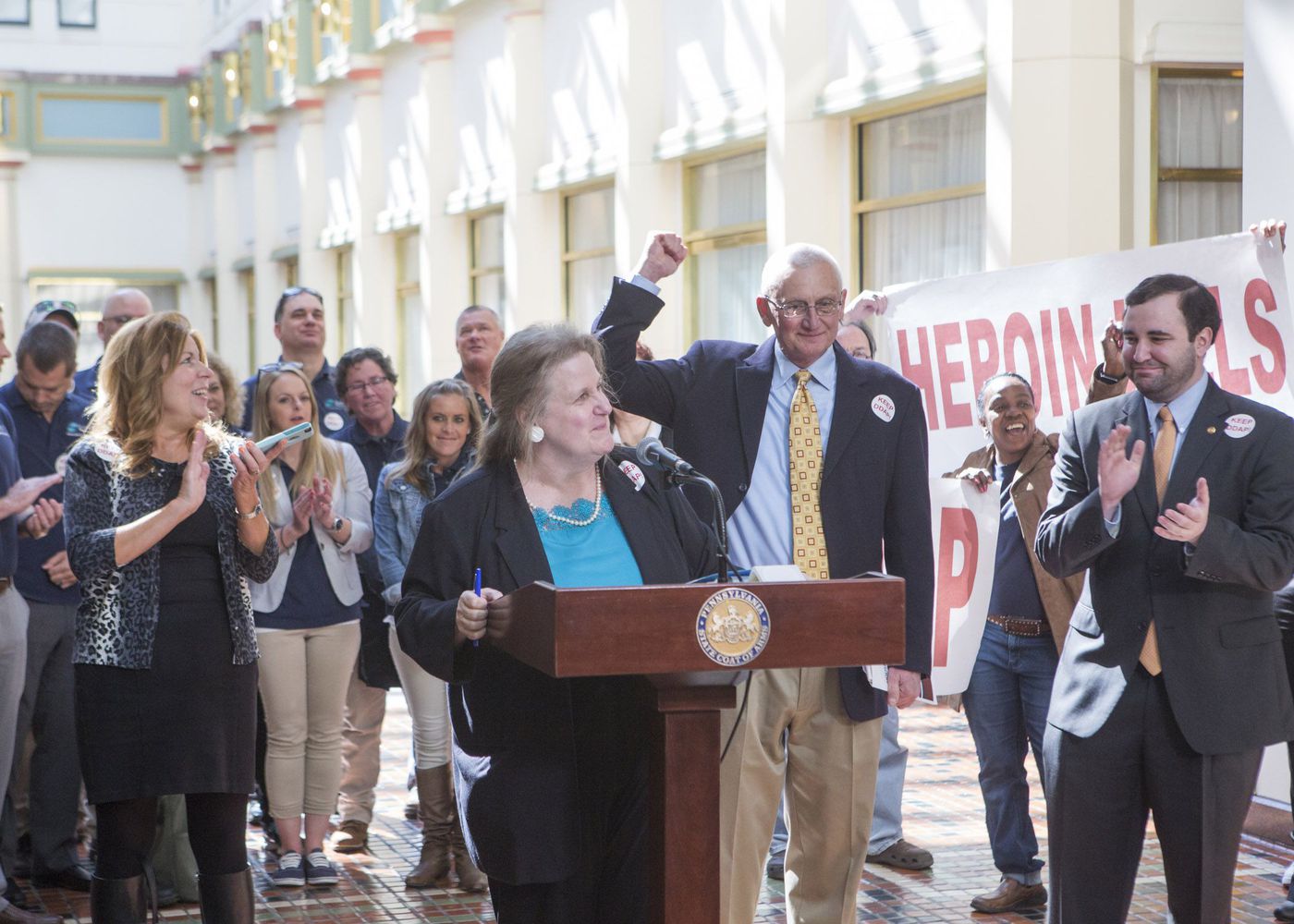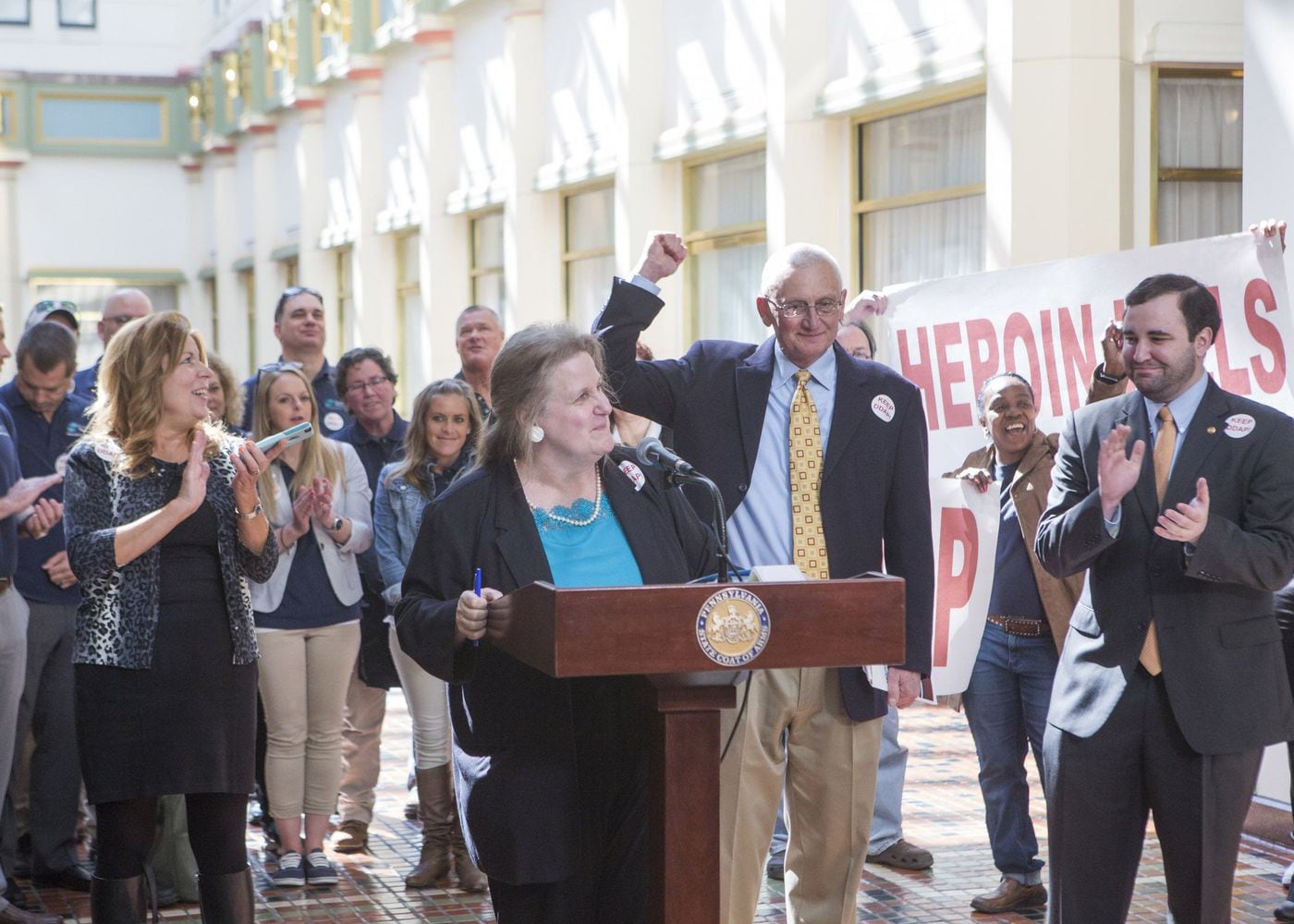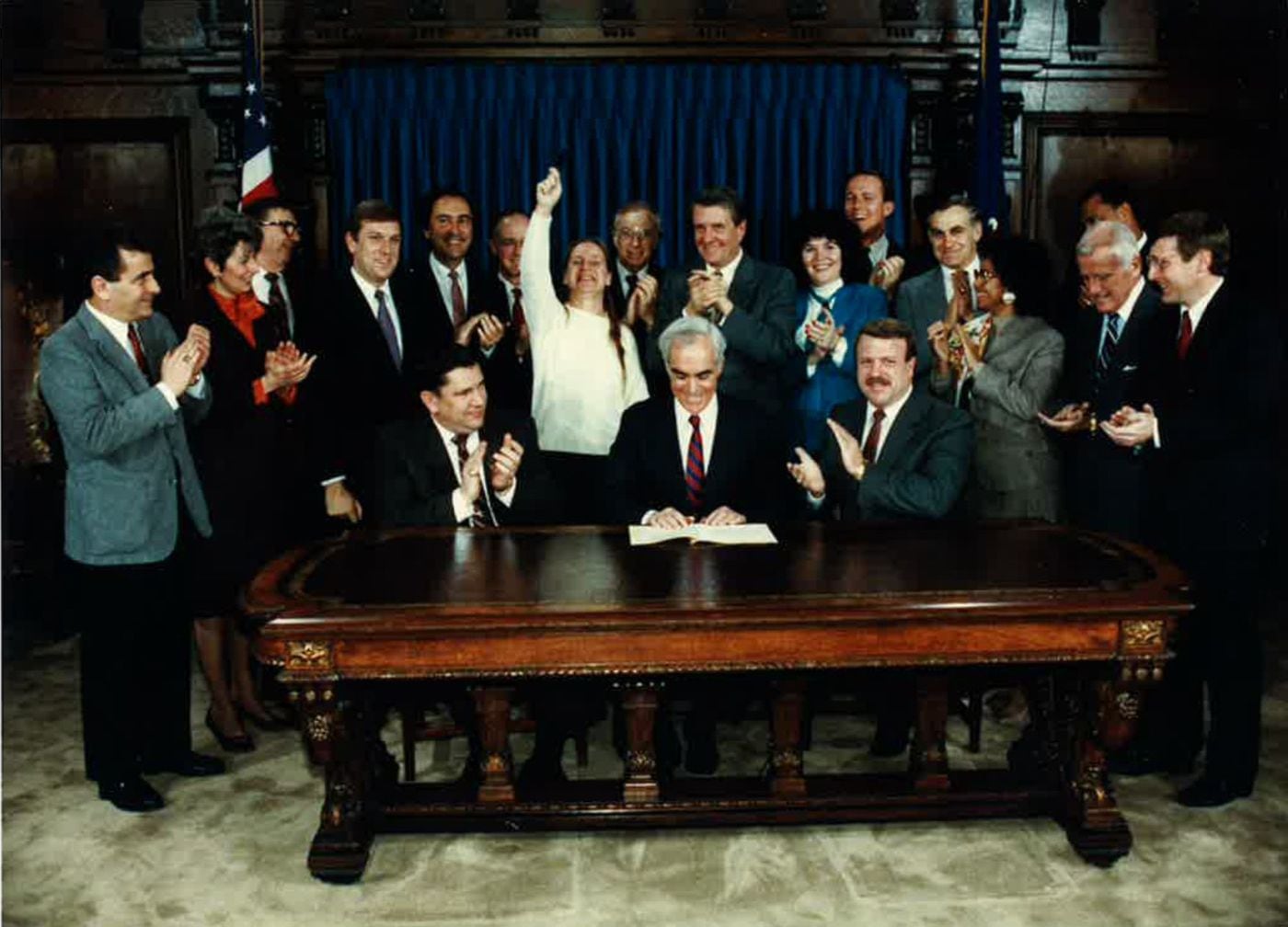She’s the force behind Pa.’s efforts to treat drug addiction. Critics say ‘there is more to the story.’

When state Rep. Gene DiGirolamo took office in 1995, one of the first visitors at the Capitol was Deb Beck. She wanted to discuss drug and alcohol treatment. DiGirolamo, a Republican from Bucks County, politely listened, filed away her card and moved on to his next meeting.
Nearly a year later, he found himself hunting through his office desk for that card: His eldest son had relapsed in his heroin addiction and DiGirolamo knew he needed to get him help, fast. DiGirolamo called Beck, who within days helped his son get back into a treatment center in Bensalem.
“Deb and I started to talk every day after that,” said DiGirolamo, now chair of the House Human Services Committee, which handles addiction-related legislation. “And we continue to do that 25 years later.”
Beck, 69, is a formidable power player in Harrisburg, influencing the state’s response to a drug addiction epidemic that has led to thousands of deaths and spawned a multimillion dollar treatment industry. She’s been in the field since 1971, and whenever lawmakers want to draft addiction-related laws, or need to get a loved one into treatment, they go to her.
Now — with the state pumping huge sums of taxpayer money into treatment for opioid addiction and paying greater attention to how best to reverse the deadly trend — some are questioning if Beck is using her sway to help patients or the businesses providing care.
In particular, her advocacy for long-term residential care for those suffering from opioid addiction has prompted concerns that she’s pushing an outdated treatment model over approaches that medical professionals say are far more effective.
“I used to think of Deb Beck as someone who advocates for addicted patients,” said Frederic Baurer, president of the Pennsylvania Society of Addiction Medicine and a practicing doctor at a treatment facility in Philadelphia. “Perhaps that was naive of me.”
Since 1986, Beck has headed the nonprofit Drug and Alcohol Service Providers Organization of Pennsylvania. Tax records show Beck is the group’s only paid member, earning more than $220,000 in each of the past three years. Beck is also the group’s only registered lobbyist, spending about $100,000 a year in lobbying expenses in Harrisburg.
She said the group includes a cross section of the addiction field, ranging from more than 300 drug and alcohol treatment providers — outpatient clinics and long-term residential facilities — to prevention and education advocates. Others in the field, however, said the group is primarily focused on the business interests of long-term, abstinence-focused treatment facilities, and that has become a point of conflict.
For decades, extended residential treatment was the bedrock of addiction care. In recent years, though, public health officials have turned to medication-assisted treatment as the best bet to stem the opioid crisis. Studies in the US and around the world have shown this approach, which combines medication and therapy, can reduce relapses and overdoses more effectively than counseling alone.
“Her organization represents the interests of the rehab industry,” Baurer said, “and in recent years these interests have often clashed with best practices for patient care.”
Medication-assisted treatment doesn't require someone to be admitted to a hospital or spend weeks at a residential facility, making it less disruptive to their life. Jennifer Smith, secretary of the state Department of Drug and Alcohol Programs, said research on the treatment’s benefits is clear.
“The fact that at this point in time [Beck’s group] is still dragging their heels in embracing it, leads me to believe there is more to the story,” Smith said. “There’s some other reason they can’t accept this is what the science shows.”
Beck said she’s not opposed to that kind of treatment, and several facilities represented by her organization offer it. But, she said, too often it’s delivered without proper counseling. And since the medication used is most effective in treating opioid addiction, it doesn’t help the many people who use other drugs or multiple drugs at the same time, Beck said.
“People always want a quick fix, and they like treatments that are new and shiny,” she said. “But without the meat and potatoes of a full continuum of care, it’s not going to work.”
In June 2016, Senate President Pro Tempore Joe Scarnati wrote a letter to Gov. Tom Wolf complaining that Beck’s group wielded “unbridled control” over the Department of Drug and Alcohol Programs.
The agency, which was previously an office under the Department of Health, was created in 2012, in large part due to Beck’s advocacy. DiGirolamo sponsored the bill creating the department, but “it was [Beck’s] idea,” he said, and “she was absolutely the person who helped me put the bill together.”
The idea was to have a department that could focus solely on addiction and elevate its importance, DiGirolamo said. (DiGirolamo was recently elected a Bucks County Commissioner and will be leaving the House in January.)


In his letter, Scarnati argued that Beck’s group used its influence over the department to funnel funding toward long-term residential treatment centers. Gary Tennis, the drug and alcohol secretary at the time, refuted the claim.
In an interview with Spotlight PA, Tennis said the decision to hire the applicant was made well before the meeting and he suggested meeting Beck only as a way to prepare for the job.
“If people say she has too much influence, then they’re not doing their jobs,” said George Kenney, former Republican chair of the House Health and Human Services Committee from 2002 to 2008. “She’s too good at what she does? Is that what they’re saying?”
Beck commands deep respect in Harrisburg, in part, because she’s been in the field for decades, long before most people cared about addiction, Kenney said.
For that man and many others Beck treated in those days, long-term stays in rehab facilities is what worked to get them sober. Even today, while medications are available to treat opioid use disorder on an outpatient basis, public health officials agree that long-term residential care is the best option for those addicted to certain drugs, like methamphetamine and cocaine.
For the next six years, Wambach introduced a bill every session requiring insurers to cover treatment for alcoholism. And each year Beck visited lawmakers to advocate for the bill.
Many days she waited in the hallways with a paper bag full of research studies only to be turned away. Some lawmakers mistook her for the Planned Parenthood lobbyist, she said, one of the only other women at the Capitol at that time.
Her standard pitch at the time ended with the line: “Addiction is an always fatal illness if left unchecked.” If that’s the case, one lawmaker said, the problem will take care of itself. Horrified, Beck quickly pivoted.
“Do you know how much it costs to kill one of these people?” she asked. It turned out focusing on dollars rather than emotion was sometimes more effective.
By 1986, Wambach, Beck, and a handful of other advocates finally built enough support to pass a law requiring all group health insurance plans to provide treatment for alcoholism.
Three years later, the requirement was expanded to include all drug addiction treatment. And when insurers refused to comply, Beck was among the lead advocates who took the case to the Pennsylvania Supreme Court, where the landmark legislation was upheld in 2009.


 Pathways Drug Rehabilitation Luxury Addiction Treatment & Detox Center
Pathways Drug Rehabilitation Luxury Addiction Treatment & Detox Center


